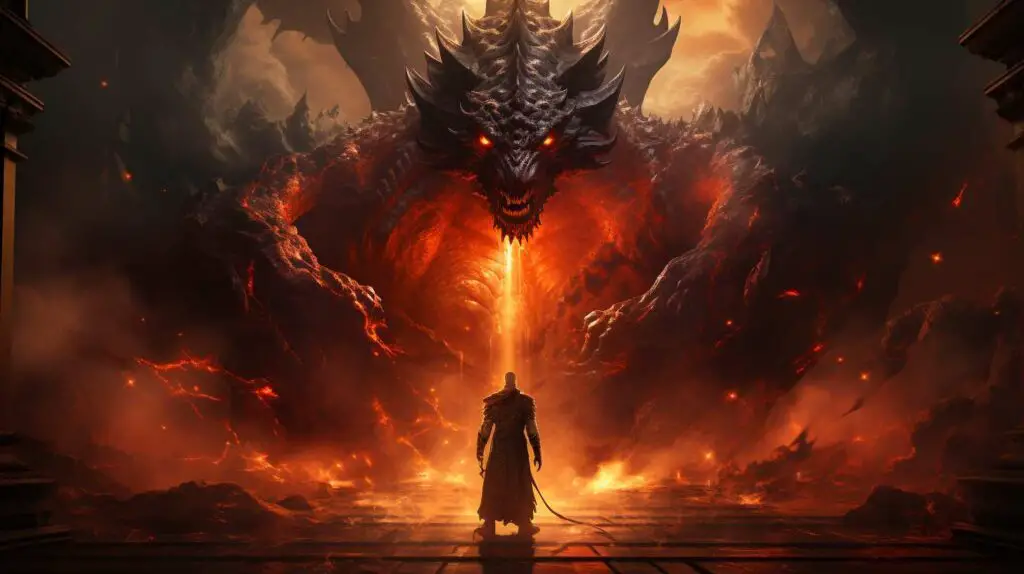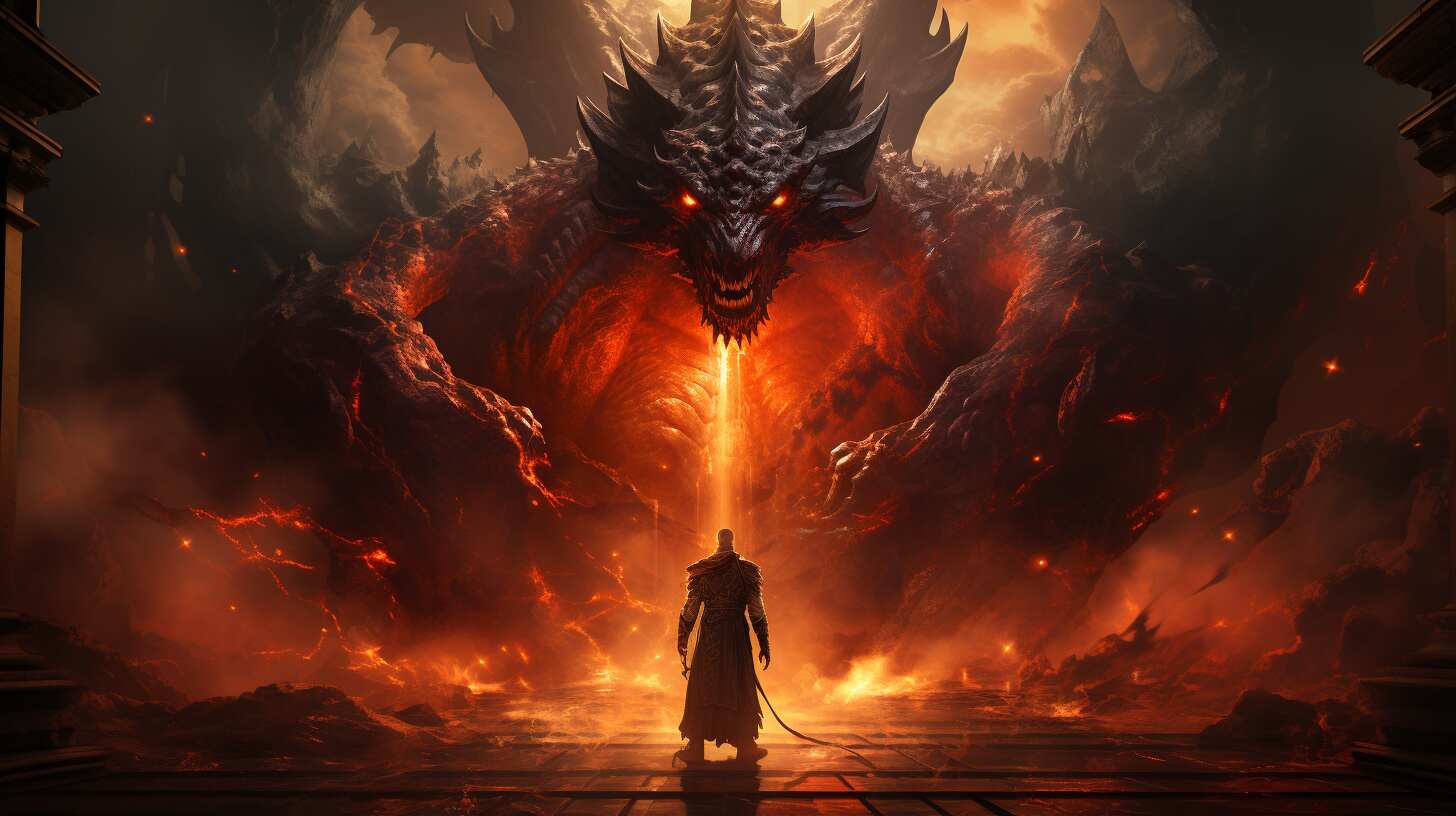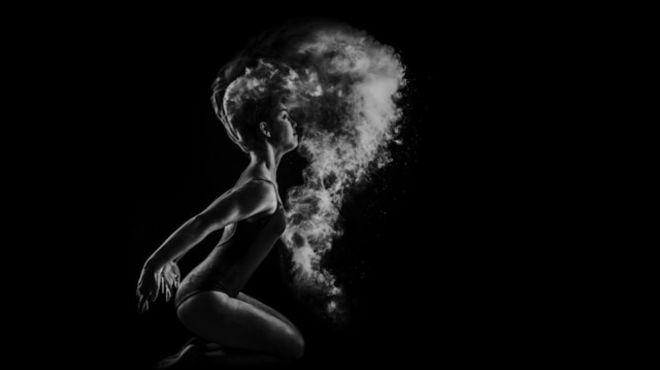
Dungeons and Dragons (D&D) is a widely beloved tabletop role-playing game, that captures the imaginations of millions worldwide. Yet, beneath the excitement and creativity it offers, concerns have arisen regarding its potential spiritual implications.
Some argue that D&D can be spiritually dangerous due to the presence of occult elements, including magic, spellcasting, and mysticism. These facets of the game can conflict with the teachings of certain religions, raising questions about their impact on players’ spirituality. We will delve into the role of magic within the game and how it intersects with real-world beliefs, shedding light on the concerns surrounding it.
Additionally, D&D introduces players to a pantheon of deities and their interactions with demonic entities. This promotion of polytheism and dealings with otherworldly beings may pose challenges for those adhering to monotheistic religious beliefs.
We’ll explore how these elements are intricately woven into the game’s narrative and the concerns they raise, offering a deeper understanding of the spiritual debate surrounding D&D. Whether you’re a seasoned adventurer or new to the world of tabletop gaming, join us as we navigate the nuanced terrain of Dungeons and Dragons, analyzing both sides of the argument.
| Key Points | Summary |
|---|---|
| Occult Elements | Magic and mysticism in D&D raise spiritual concerns. |
| Deities and Demons | Polytheism and dealings with otherworldly beings challenge monotheistic beliefs. |
| Morality Question | D&D’s moral ambiguity can lead to confusion and spiritual turmoil. |
| Escapism and Detachment | Excessive immersion in the game may result in unhealthy detachment from reality. |
| Idolatry Concerns | Deep devotion to D&D raises concerns akin to idolatry. |
Reasons for Spiritual Danger
The Occult Elements
Magic and Spells
One of the primary concerns raised by critics is the presence of occult elements in D&D, including magic, spellcasting, and mysticism. These elements can conflict with the teachings of some religions and raise questions about their impact on players’ spirituality. We’ll examine the role of magic in the game and how it intersects with real-world beliefs.
Deities and Demons
D&D introduces players to a pantheon of deities and their interactions with demonic entities. This promotion of polytheism and dealings with otherworldly beings can be at odds with monotheistic religious beliefs. We’ll explore how these elements are woven into the game’s narrative and the concerns they raise.
The Morality Question
Distorted Moral Compass
Within D&D, players encounter a morality system that may not align with their personal beliefs. The game presents ethical choices and dilemmas, sometimes blurring the lines between right and wrong. We’ll delve into how this moral ambiguity can lead to confusion and spiritual turmoil.
Escapism and Detachment
D&D offers players the chance to immerse themselves in a fantasy world. However, critics argue that excessive escapism can lead to an unhealthy detachment from reality and spiritual grounding. We’ll explore the fine line between healthy escapism and potential spiritual danger.
Devotion to the Game
Some players’ deep devotion to D&D has raised concerns that it is akin to idolatry, potentially breaching their spiritual beliefs and practises. We’ll examine the impact of players’ dedication to the game on their spirituality.
Cultural Beliefs

Native American Traditions
In some Native American cultures, animals are seen as spiritual guides, and the appearance of certain creatures can hold significant spiritual meaning. When Native American individuals engage with D&D, they may interpret the inclusion of creatures and magic differently, potentially leading to conflicts with their traditional beliefs.
African Spiritual Practises
African spirituality often involves interactions with spirits and ancestors. The inclusion of demons, spirits, and spellcasting in D&D may be viewed through the lens of African spiritual practices. Players from these backgrounds might grapple with the game’s portrayal of these elements.
Hinduism and Eastern Beliefs
In Hinduism and other Eastern religions, concepts of karma and reincarnation play a significant role. Individuals affected by these beliefs might have different perceptions of D&D’s alignment system and life and death themes.
Understanding the diverse cultural perspectives and potential clashes with the themes presented in D&D adds depth to the spiritual debate surrounding the game.
Comparative Religions:
Dungeons & Dragons’ spiritual implications can be seen through the lens of various religious traditions and beliefs. Let’s delve into how different religious communities perceive the game:
Christianity: Within Christianity, opinions on D&D can differ. Some Christians view it as incompatible with their faith due to its portrayal of magic and polytheistic elements. However, others believe that it can be enjoyed responsibly, provided players maintain a clear distinction between fantasy and reality.
Islam: In Islamic communities, D&D’s mystical and magical aspects may raise concerns. Similar to some Christian perspectives, individuals from these backgrounds may approach the game cautiously. Islamic scholars have varying views on whether such games are permissible.
Hinduism: Hindu beliefs, which encompass a rich tapestry of gods, karma, and reincarnation, may influence how individuals interpret D&D’s themes. Some Hindus may find parallels between the game’s alignment system and their concepts of karma and dharma.
Native Spirituality: In Native American and indigenous belief systems, animals and spirits hold significance. Native individuals engaging with D&D may have distinct perspectives on the inclusion of creatures and magic in the game, potentially leading to conflicts with their traditional beliefs.
Buddhism: Buddhist views on D&D can vary, but many Buddhists emphasize mindfulness and detachment from material desires. Some may view excessive gaming, which prioritizes material acquisition, as conflicting with these principles.

How Does Dungeons and Dragons Impact Spirituality?
While Dungeons and Dragons (D&D) is a tabletop role-playing game that has been popular for decades, its impact on spirituality remains a subject of debate. Some individuals claim that it poses a spiritual threat due to its elements of magic and fantasy. However, it is important to remember that D&D is simply a game, and its impact on a person’s spiritual well-being ultimately depends on the individual’s beliefs and how they engage with the game.
D&D involves elements of magic and fantasy, which some people may find conflicting with their religious beliefs. It is essential to recognize that D&D is a form of entertainment and not meant to replace or challenge one’s spiritual convictions. Players should approach the game with a clear understanding of its fictional nature and maintain a healthy separation between fantasy and reality.
Pros and Cons
Dungeons and Dragons (D&D), a popular tabletop role-playing game, can have both positive and negative impacts on one’s spirituality, depending on an individual’s beliefs and how they interpret the game’s elements.
Pros:
– Encourages creativity and imagination
– Enhances storytelling abilities
– Promotes teamwork and collaboration
– Improves problem-solving skills
– Increases empathy through playing different characters
Cons:
– May conflict with certain religious beliefs
– Potentially exposes players to dark or controversial themes
– Some may believe the game encourages unhealthy escapism
– Players might excessively focus on material aspects (e.g., acquiring treasures and powers)
– Possibility of developing an addictive behavior or obsession with the game
This balanced perspective allows individuals to weigh the potential spiritual benefits and drawbacks of engaging in Dungeons and Dragons.
Ways to Mitigate the Potential Hazard

Finding Balance and Boundaries
While some may argue that playing Dungeons and Dragons (D&D) can pose a threat to one’s spirituality, it is important to consider measures that can help mitigate these risks. By adopting a balanced approach, setting clear boundaries, and engaging in open communication, players can enjoy D&D without compromising their spiritual well-being.
Maintain a balanced perspective and approach to the game; remember that it is just a form of entertainment
Set clear boundaries for game content, ensuring that it aligns with your spiritual values
Engage in open communication with your fellow players and the Dungeon Master to express any concerns
Prioritize time for spiritual growth and reflection, ensuring that D&D does not overshadow your spiritual pursuits
Utilize D&D as a platform for discussing and exploring complex ethical and moral dilemmas, fostering spiritual growth
By actively addressing potential spiritual concerns and maintaining a balanced approach to the game, individuals can enjoy the creative and social aspects of D&D while safeguarding their spiritual well-being.
Addressing Common Questions
Is playing Dungeons and Dragons spiritually dangerous? No, playing Dungeons and Dragons is not spiritually dangerous. The game is widely considered to be a form of entertainment and storytelling, and there is no scientific evidence to suggest that it poses any spiritual risks.
What are the possible spiritual risks of Dungeons and Dragons?There is no scientific evidence to suggest that playing Dungeons and Dragons poses any spiritual risks.
Is Dungeons and Dragons inspired by any particular religion or belief system? No, a particular religion or belief system did not inspire Dungeons and Dragons. It is a fantasy-themed tabletop role-playing game that has its own mythology and culture.
Is there anything I should be aware of before playing Dungeons and Dragons? Yes, before playing Dungeons and Dragons, it is important to read the game manual and understand the rules. It is also important to be aware of your own boundaries when playing and never feel pressured to do anything that makes you uncomfortable.
The world of Dungeons and Dragons is rich with adventure, but it’s equally essential to navigate the spiritual considerations that may arise while embarking on these epic quests.
Conclusion
Navigating the Complex Terrain
In conclusion, the question of whether Dungeons and Dragons is spiritually dangerous is a complex and controversial issue. While some argue that the game promotes negative spiritual practices and beliefs, others view it as harmless entertainment. However, it is important to acknowledge that the game’s impact on spirituality may vary from person to person.
Ultimately, individuals should assess their own beliefs and values before engaging in Dungeons and Dragons or any other activity that may impact spirituality. To mitigate potential hazards, individuals can consider setting boundaries, seeking guidance from trusted spiritual leaders, and engaging in self-reflection and prayer.
Overall, it is essential to approach this topic with an open mind and a willingness to respect differing perspectives. Understanding the nuanced interplay between spirituality and tabletop gaming can lead to more informed choices and meaningful experiences within the realm of Dungeons and Dragons.







